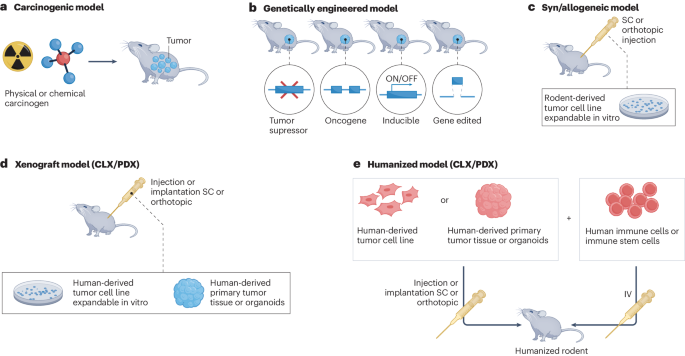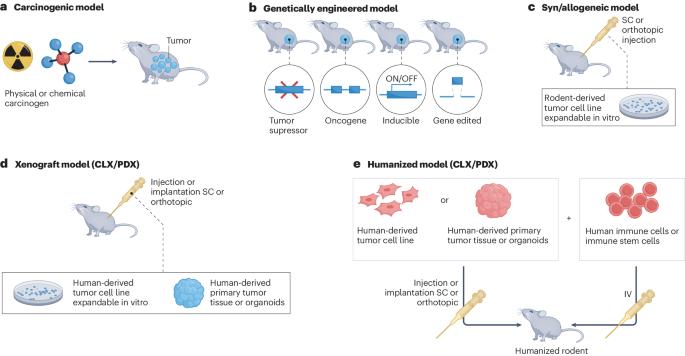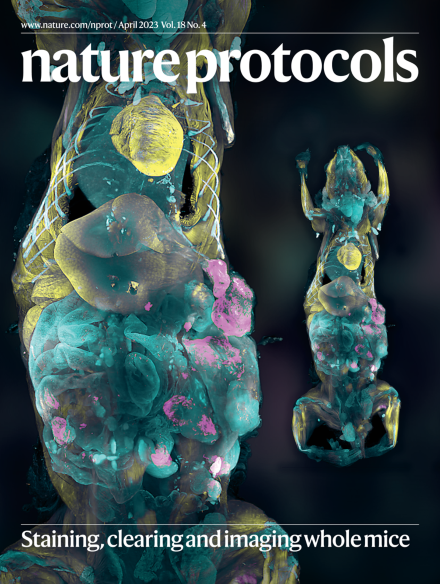OBSERVE: guidelines for the refinement of rodent cancer models
IF 13.1
1区 生物学
Q1 BIOCHEMICAL RESEARCH METHODS
引用次数: 0
Abstract
Existing guidelines on the preparation (Planning Research and Experimental Procedures on Animals: Recommendations for Excellence (PREPARE)) and reporting (Animal Research: Reporting of In Vivo Experiments (ARRIVE)) of animal experiments do not provide a clear and standardized approach for refinement during in vivo cancer studies, resulting in the publication of generic methodological sections that poorly reflect the attempts made at accurately monitoring different pathologies. Compliance with the 3Rs guidelines has mainly focused on reduction and replacement; however, refinement has been harder to implement. The Oncology Best-practices: Signs, Endpoints and Refinements for in Vivo Experiments (OBSERVE) guidelines are the result of a European initiative supported by EurOPDX and INFRAFRONTIER, and aim to facilitate the refinement of studies using in vivo cancer models by offering robust and practical recommendations on approaches to research scientists and animal care staff. We listed cancer-specific clinical signs as a reference point and from there developed sets of guidelines for a wide variety of rodent models, including genetically engineered models and patient derived xenografts. In this Consensus Statement, we systematically and comprehensively address refinement and monitoring approaches during the design and execution of murine cancer studies. We elaborate on the appropriate preparation of tumor-initiating biologicals and the refinement of tumor-implantation methods. We describe the clinical signs to monitor associated with tumor growth, the appropriate follow-up of animals tailored to varying clinical signs and humane endpoints, and an overview of severity assessment in relation to clinical signs, implantation method and tumor characteristics. The guidelines provide oncology researchers clear and robust guidance for the refinement of in vivo cancer models. This Consensus Statement, which presents the best practices for implantation, monitoring and assessment of tumors in rodents, aims to improve the refinement of cancer models in vivo.


OBSERVE:啮齿动物癌症模型改进指南。
现有的准备准则(《动物研究与实验程序规划:卓越建议》(PREPARE))和报告准则(《动物研究:动物实验程序规划》(PREPARE动物实验的准备(《动物研究与实验程序规划:卓越建议》(PREPARE))和报告(《动物研究:动物实验报告(ARRIVE)并没有为体内癌症研究中的改进工作提供明确而标准化的方法,导致公布的通用方法部分不能很好地反映为准确监测不同病理变化所做的尝试。遵守 3Rs 准则主要集中在减少和替代方面;然而,改进则较难实施。肿瘤学最佳实践:肿瘤学最佳实践:体外实验的体征、终点和改进(OBSERVE)指南是由 EurOPDX 和 INFRAFRONTIER 支持的一项欧洲倡议的成果,旨在通过为研究科学家和动物护理人员提供稳健实用的方法建议,促进体外癌症模型研究的改进。我们列出了癌症的特异性临床症状作为参考点,并以此为基础制定了适用于各种啮齿类动物模型的指导原则,包括基因工程模型和患者衍生异种移植物。在本共识声明中,我们系统而全面地阐述了在设计和实施鼠类癌症研究过程中的完善和监测方法。我们详细阐述了肿瘤诱导生物制剂的适当制备和肿瘤植入方法的改进。我们描述了与肿瘤生长相关的临床症状监测、针对不同临床症状和人道终点的适当动物随访,以及与临床症状、植入方法和肿瘤特征相关的严重性评估概述。该指南为肿瘤学研究人员完善体内癌症模型提供了明确而有力的指导。
本文章由计算机程序翻译,如有差异,请以英文原文为准。
求助全文
约1分钟内获得全文
求助全文
来源期刊

Nature Protocols
生物-生化研究方法
CiteScore
29.10
自引率
0.70%
发文量
128
审稿时长
4 months
期刊介绍:
Nature Protocols focuses on publishing protocols used to address significant biological and biomedical science research questions, including methods grounded in physics and chemistry with practical applications to biological problems. The journal caters to a primary audience of research scientists and, as such, exclusively publishes protocols with research applications. Protocols primarily aimed at influencing patient management and treatment decisions are not featured.
The specific techniques covered encompass a wide range, including but not limited to: Biochemistry, Cell biology, Cell culture, Chemical modification, Computational biology, Developmental biology, Epigenomics, Genetic analysis, Genetic modification, Genomics, Imaging, Immunology, Isolation, purification, and separation, Lipidomics, Metabolomics, Microbiology, Model organisms, Nanotechnology, Neuroscience, Nucleic-acid-based molecular biology, Pharmacology, Plant biology, Protein analysis, Proteomics, Spectroscopy, Structural biology, Synthetic chemistry, Tissue culture, Toxicology, and Virology.
 求助内容:
求助内容: 应助结果提醒方式:
应助结果提醒方式:


